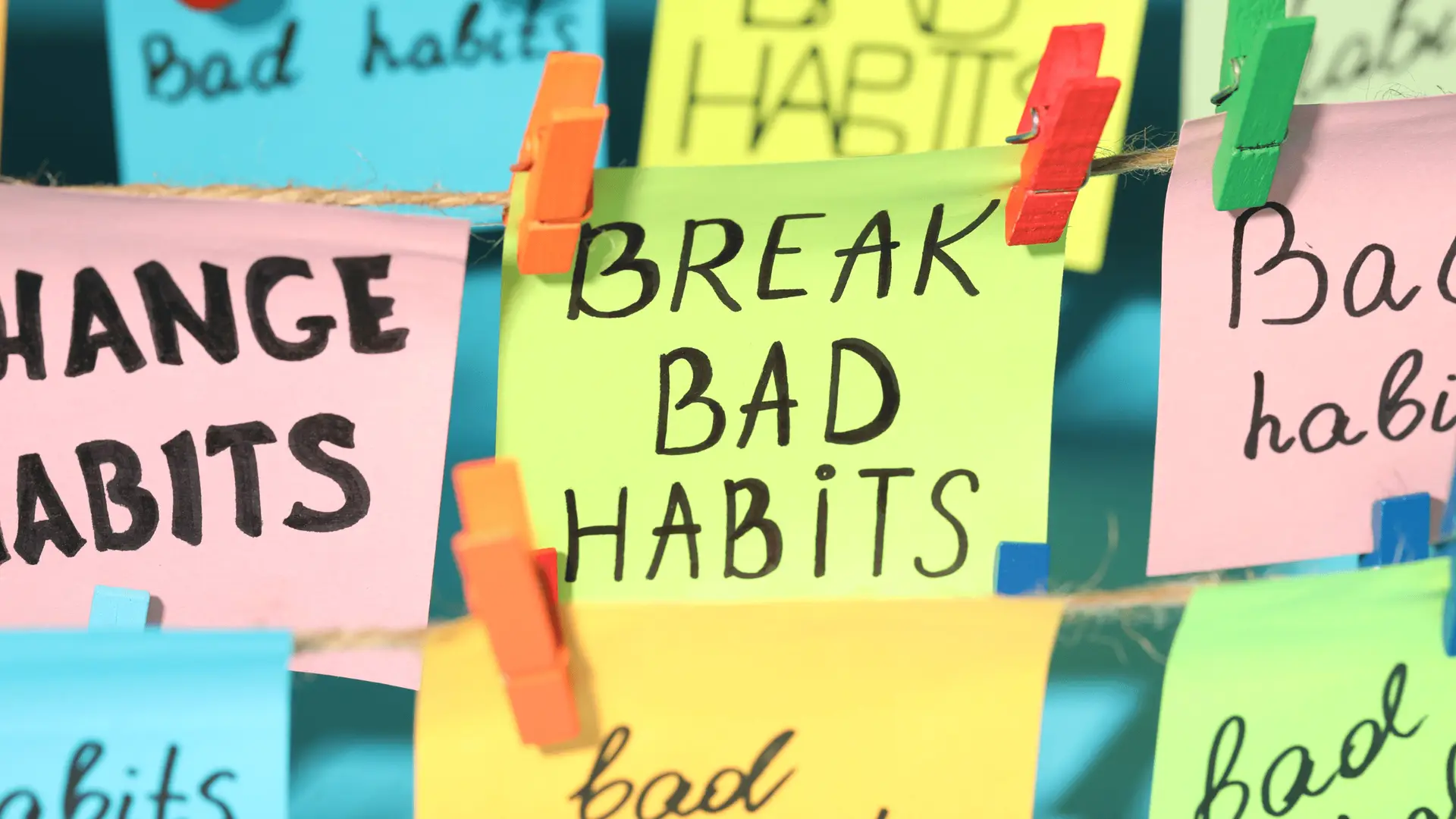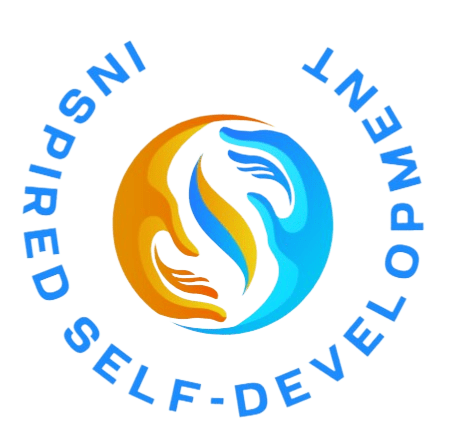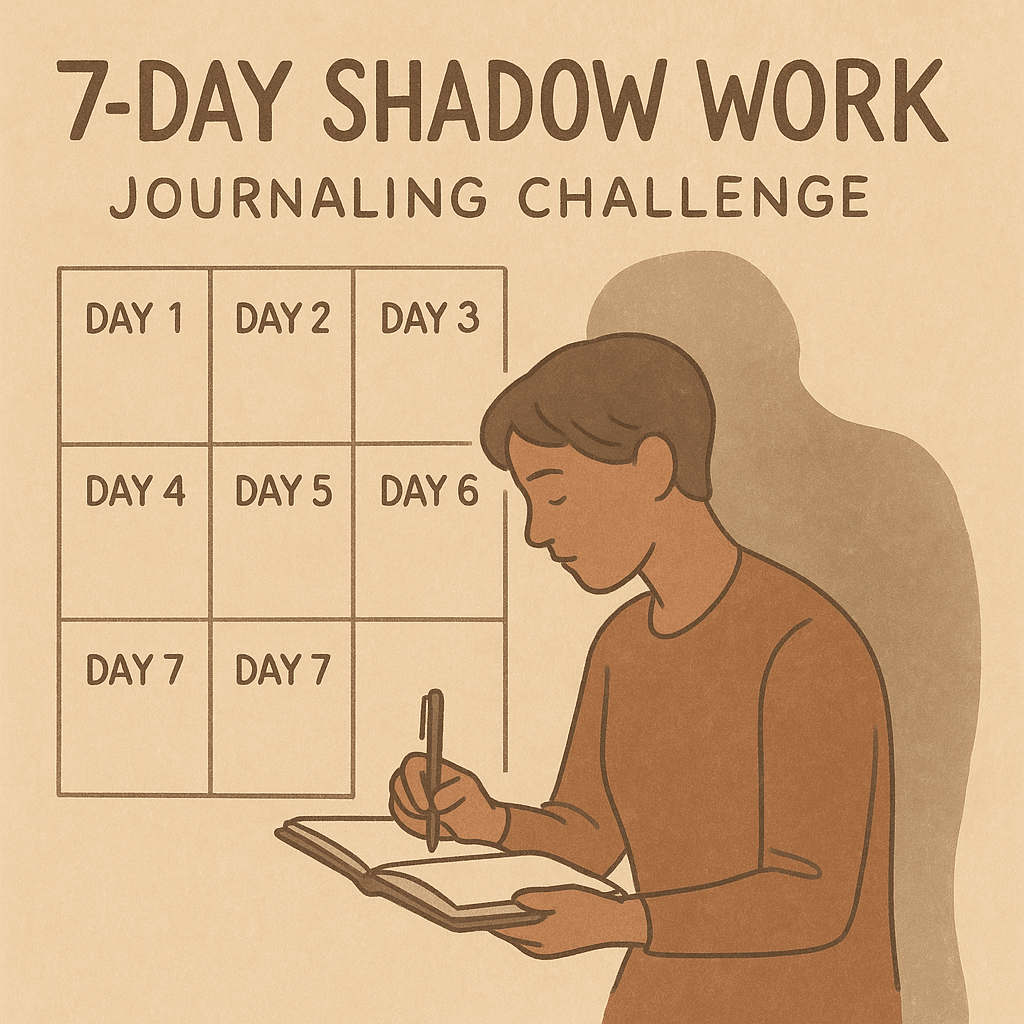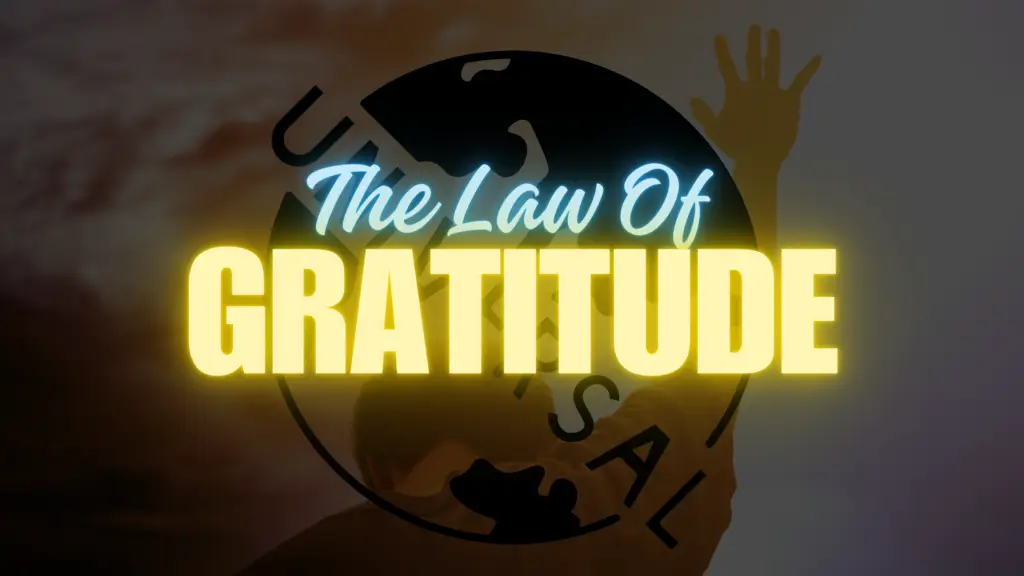A Guided Exploration with Inspired Self Development

- Jose Flores
Share Article:
The Building Blocks of a Successful Life
In the intricate tapestry of our daily lives, habits weave a pattern that shapes our actions, influences our decisions, and ultimately defines who we are. Whether we realize it or not, habits play a crucial role in our journey towards success and well-being. They are the silent architects of our destinies, guiding our actions on autopilot and becoming ingrained in our daily routines. This blog post delves deep into the realm of habits, exploring what they are, how they are formed, the role of society and surroundings, the significance of self-awareness, and the impact they can have on our lives.
What Are Habits?
Habits are ingrained, automatic behaviors that individuals routinely perform without conscious thought. These behaviors become deeply embedded in one’s daily life, often shaping routines and influencing decision-making. Habits can be both positive and negative, impacting various aspects of an individual’s life. They are formed through repetition, creating neural pathways in the brain that make the behavior more automatic over time.
Examples of habits include:
Morning Routine: Waking up at a specific time, brushing teeth, and having a morning cup of coffee can become habitual actions that set the tone for the day.
Exercise Habits: Going for a run every morning, hitting the gym after work, or practicing yoga regularly are examples of exercise habits that contribute to physical well-being.
Healthy Eating: Choosing nutritious meals over unhealthy options, incorporating fruits and vegetables into daily diets, or practicing portion control are examples of positive eating habits.
Procrastination: Delaying tasks or engaging in last-minute work due to a habitual tendency to procrastinate is an example of a negative habit that can hinder productivity.
Smoking: Lighting a cigarette in response to certain cues, such as stress or social situations, exemplifies a habit that can have detrimental effects on health.
Mindfulness Practices: Incorporating mindfulness meditation or deep-breathing exercises into a daily routine can become positive habits that contribute to mental well-being.
Technology Use: Constantly checking smartphones or social media throughout the day can develop into a habit, affecting focus and productivity.
Gratitude Journaling: Taking a few minutes each day to write down things one is grateful for establishes a positive habit that enhances overall well-being.
Understanding habits involves recognizing their automatic nature and the influence they have on daily actions and choices. By being mindful of habits, individuals can consciously shape their routines for positive outcomes and personal growth.
How Habits Are Formed?
Habits are formed through a psychological process involving a cycle known as the “habit loop,” which consists of three key components: cue, routine, and reward. This concept, popularized by Charles Duhigg in his book “The Power of Habit,” provides insights into the neurological and behavioral aspects of habit formation.
Cue: The habit loop begins with a cue, which is a trigger or signal that initiates the behavior. Cues can be external, internal, or situational. External cues may include specific locations, times of day, or the presence of certain people. Internal cues could be emotional states, thoughts, or physiological sensations.
Routine: The routine is the actual behavior or action that follows the cue. It is the habitual response to the trigger. This behavior can be physical, mental, or emotional. The routine is the aspect of the habit that becomes automated through repetition.
Reward: The routine is followed by a reward, which is a positive outcome or reinforcement associated with the behavior. Rewards satisfy a craving or desire, creating a positive feedback loop that strengthens the habit loop. Over time, the brain associates the cue and routine with the pleasurable reward, making the behavior more automatic.
For example:
Cue: Feeling stressed (external cue).
Routine: Eating a chocolate bar (behavior).
Reward: Experiencing momentary pleasure and stress relief (positive outcome).
It’s important to note that not all habits are consciously formed. Habits can also emerge through observational learning, social influence, and environmental factors. Additionally, habits can be intentional, where individuals actively choose and repeat behaviors to create positive routines in their lives.
The repetition of the habit loop reinforces neural pathways in the brain, making the behavior more automatic over time. The more consistently the loop is completed, the stronger the habit becomes. Understanding this process allows individuals to be more intentional about forming positive habits and breaking unwanted ones by consciously manipulating the habit loop.
Society and Surroundings: Architects of Habits
Our surroundings, culture, and societal norms act as silent architects shaping our habits. From the food we eat to the way we communicate, the influence of external factors cannot be overstated. Exploring how societal expectations mold our habits sheds light on the interconnectedness of personal choices and the world around us. Societal norms not only influence the habits we develop but also dictate what behaviors are deemed acceptable or taboo. Understanding this intricate interplay between individual choices and societal influences is key to navigating the complex landscape of habit formation.

"Outwitting the Devil." Much like Hill's exploration of negative forces, societal expectations and cultural norms can shape our habits, prompting reflection on the autonomy of individual choices. Delve into the impact of surroundings, break free from societal conditioning, and empower yourself through self-awareness and intentional decision-making. To enrich your understanding, explore the free audiobook version of "Outwitting the Devil" available on our Youtube channel. This resource offers a valuable exploration of how societal dynamics influence habit formation, providing insights to navigate this complex interplay and pave the way for intentional and fulfilling habits.
How long does it take to create a habit?
Contrary to the widely believed notion that it takes a fixed 21 days to form a habit, recent research from the European Journal of Social Psychology provides a more nuanced understanding. On average, the study suggests that it takes approximately 66 days to solidify a habit, but this timeframe is by no means universal.
Factors Influencing Habit Formation
The variation is significant, ranging from a relatively quick 18 days to a more extended period of 254 days. This highlights the complex nature of habit formation and the individualized factors that come into play. Several factors contribute to the diverse timelines for habit formation.
Complexity of Behavior
The complexity of the behavior itself plays a role, with more intricate habits requiring a more extended period to become ingrained. Additionally, individual motivation, environmental influences, and the level of commitment significantly impact how long it takes for a habit to take root.
The 21/90 Rule
An interesting perspective on habit duration is presented by the 21/90 rule, suggesting that it takes 21 days to form a habit and 90 days to transform it into a permanent lifestyle change. While this rule provides a convenient guideline, it’s crucial to approach it with a degree of skepticism.
Critically Examining Habit Duration
The origin of the popular 21-day myth can be traced back to anecdotal evidence from patients who underwent plastic surgery treatment. This underlines the importance of critically examining such rules and understanding the individual variability in habit formation.
Embracing Individual Timelines
In conclusion, the duration of habit building is a dynamic and individualized process. Recognizing the intricate interplay of factors such as behavior complexity, motivation, environment, and commitment allows individuals to approach their habit-forming journey with a realistic perspective. Embracing the diversity in timelines and understanding the complexity involved in cultivating lasting behavioral changes empowers individuals to navigate their personal paths to success and well-being.
How to Lose a Habit
Breaking free from undesirable habits is a challenge many face. Whether it’s quitting smoking, overcoming procrastination, or ditching a sugary diet, understanding the psychology behind habit cessation is crucial. Strategies, ranging from gradual substitution to identifying triggers and implementing positive reinforcement, can pave the way to a habit-free life. In the quest to lose a habit, recognizing the triggers that prompt the behavior is pivotal. These triggers can be environmental, emotional, or even social. Once identified, individuals can develop alternative responses to these triggers, gradually replacing the undesired habit with a more positive one.
The Role of Self-Awareness
Self-awareness acts as a compass in the vast landscape of habit formation. Understanding our triggers, motivations, and the underlying beliefs that drive our actions empowers us to make conscious choices. Cultivating mindfulness and introspection is key to navigating the intricate web of habits. By fostering self-awareness, individuals can identify the root causes of their habits and make informed decisions about whether to reinforce, modify, or eliminate certain behaviors. This introspective journey is fundamental to breaking free from the grip of unconscious habits and steering one’s life in a more intentional direction.
The Role of the Subconscious and Consciousness
The subconscious mind plays a significant role in the formation and execution of habits. It acts as the storehouse of automatic responses and learned behaviors, influencing our daily actions without our conscious awareness. Understanding the interaction between the subconscious and consciousness is essential for unraveling the complexities of habit formation. While conscious efforts are crucial for initiating change, the subconscious mind often dictates our default behaviors. By bridging the gap between conscious intentions and subconscious programming, individuals can align their habits with their goals and aspirations.
The Importance of Habits
Habits are not just mundane routines; they are the cornerstones of success, health, and happiness. Unpacking the significance of habits in various aspects of life, from career achievements to physical well-being, highlights their transformative power. The compounding effect of small, positive habits can lead to monumental changes over time. Recognizing the importance of habits in shaping the trajectory of our lives is the first step towards harnessing their potential for positive transformation. Whether it’s the discipline to exercise regularly, the consistency in pursuing goals, or the mindfulness in daily choices, habits form the foundation upon which we build a purposeful and fulfilling life.
Habits and Addictions
While habits can be a force for good, they also have a darker side. Examining how habits can escalate into addictions provides a sobering perspective on the importance of cultivating healthy behaviors. Understanding the thin line between habit and addiction is essential for maintaining balance in our lives. Habits become addictions when they exert a harmful influence on physical or mental well-being, leading to a loss of control. Exploring this transition sheds light on the factors that contribute to addictive behaviors, emphasizing the need for self-awareness and intervention. By recognizing the potential dangers of unchecked habits, individuals can take proactive steps to ensure their habits remain a source of positive influence rather than descending into detrimental patterns.
Reflecting on Your Habits
As we delve into the intricacies of habits and their formation, it’s essential to take a moment for self-reflection. Ask yourself thought-provoking questions that can spark awareness and initiate positive change in your life. Consider the following inquiries:
What habits shape your mornings? Reflect on the first things you do upon waking up. Are these habits contributing to a positive start to your day?
Do you have habits that enhance your well-being? Consider your daily routines related to health, such as exercise, nutrition, and mindfulness practices. Are these habits promoting your overall well-being?
What triggers your stress-related habits? Identify situations or emotions that prompt stress-related habits. Understanding these triggers can empower you to adopt healthier coping mechanisms.
Which habits contribute to your personal growth? Reflect on behaviors that align with your goals and aspirations. How can you reinforce and build upon these positive habits?
Are there habits you’d like to change? Pinpoint specific habits you feel could be hindering your progress or well-being. What steps can you take to replace or modify these behaviors?
How do your surroundings influence your habits? Consider the impact of your environment on your habits. Are there changes you can make to create a more conducive setting for positive behaviors?
What small changes can lead to significant habits? Explore opportunities for incremental adjustments in your routines that can gradually lead to positive and lasting habits.
Are there habits you admire in others? Look to individuals you admire. What habits do they possess that you could incorporate into your own life for personal growth?
Taking time to ponder these questions can foster self-awareness and set the stage for intentional habit formation. Remember, small changes can lead to significant transformations over time. Use this self-reflection as a catalyst for positive change on your journey towards a more fulfilling and purposeful life.
Welcome

Hey there! I’m Jose Flores, your guide on this journey of self-discovery and inspired living. As a passionate advocate for personal development, I believe that every small step we take leads to profound transformation. Join me as we navigate the twists and turns of life, uncovering the secrets to self-mastery, mindfulness, and positive growth




